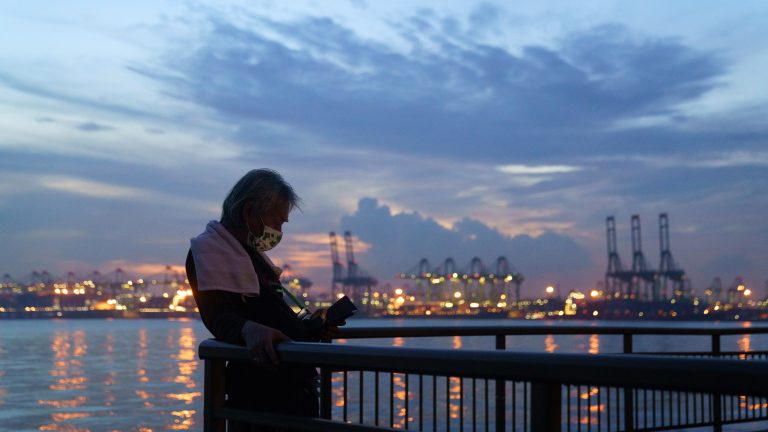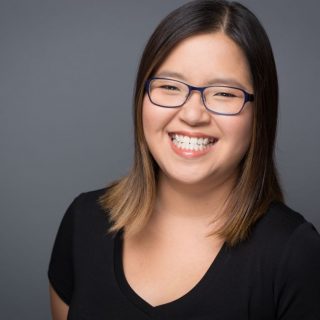If the government appoints itself Guardian of the Internet, its citizens will never learn how to navigate a messy online world.
By KIRSTEN HAN
29 JUNE 2022

Ore Huiying/Bloomberg/Getty Images
IDEAS
By KIRSTEN HAN
It looks like Singapore’s government is appointing itself Guardian of the Internet again. Earlier this month, the Ministry of Communications and Information announced a proposal for two codes of practice that would require social media companies to have “system-wide processes” to deal with sexual or violent content, and give authorities the power to order companies to disable access to specific content for users in Singapore.
It’s a clear progression from March, when the Minister for Communications and Information, Josephine Teo, said that the codes would focus on the three areas of child safety, user reporting and the accountability of social media platforms. There aren’t many more details at this stage, but the government says that these new powers are aimed at protecting people from harmful online content relating to self-harm, sexual harms, public health, public security, and racial and religious intolerance.
This is, by now, a familiar pattern. The government — dominated by the People’s Action Party (PAP) for over 60 years — tends to present a threat, cast itself in the role of protector, then grant itself powers to regulate and censor. It’s how the government expands its power, even as it presents itself to the world as a problem-solver. We saw it in 2019 with the Protection from Online Falsehoods and Manipulation Act (POFMA), when the danger was “fake news,” and with the 2021 Foreign Interference (Countermeasures) Act (FICA), when hostile foreign meddlers were the big bad wolf at the door.
In both these cases, expansive laws allowed the government sweeping powers to issue orders demanding corrections, content removal, access blocks, and more, without checks and balances that inspire confidence. Monsters lurk on the internet, and Singapore’s government persists in the belief that it needs even more powers to deal with them.
IDEAS
By KIRSTEN HAN
It looks like Singapore’s government is appointing itself Guardian of the Internet again. Earlier this month, the Ministry of Communications and Information announced a proposal for two codes of practice that would require social media companies to have “system-wide processes” to deal with sexual or violent content, and give authorities the power to order companies to disable access to specific content for users in Singapore.
It’s a clear progression from March, when the Minister for Communications and Information, Josephine Teo, said that the codes would focus on the three areas of child safety, user reporting and the accountability of social media platforms. There aren’t many more details at this stage, but the government says that these new powers are aimed at protecting people from harmful online content relating to self-harm, sexual harms, public health, public security, and racial and religious intolerance.
This is, by now, a familiar pattern. The government — dominated by the People’s Action Party (PAP) for over 60 years — tends to present a threat, cast itself in the role of protector, then grant itself powers to regulate and censor. It’s how the government expands its power, even as it presents itself to the world as a problem-solver. We saw it in 2019 with the Protection from Online Falsehoods and Manipulation Act (POFMA), when the danger was “fake news,” and with the 2021 Foreign Interference (Countermeasures) Act (FICA), when hostile foreign meddlers were the big bad wolf at the door.
In both these cases, expansive laws allowed the government sweeping powers to issue orders demanding corrections, content removal, access blocks, and more, without checks and balances that inspire confidence. Monsters lurk on the internet, and Singapore’s government persists in the belief that it needs even more powers to deal with them.
What might fall afoul of the government’s safety concerns, you’re wondering? To give you an idea, the 2009 Public Order Act — ostensibly aimed at maintaining public safety — is so broad that even a single person can constitute an illegal assembly. On Friday, June 24, a friend and I spent almost three hours under investigation for this at the Bedok Police Division, where we were slapped with a further alleged offense of “illegal procession,” due to wearing anti-death-penalty T-shirts and walking to the police station from the market across the road (later found not to be an offense after all). Officers also suggested that I might be penalized for obstruction because I refused to hand over my Facebook, Instagram, and Twitter passwords.
The PAP government has a habit of claiming harm as and when it suits them, and there are real reasons to worry about overreach, given its track record. To Singapore, with Love, an award-winning documentary film about Singapore’s political exiles, was banned from public screening in the country on the grounds of harming national security. More recently, the Ministry of Manpower refused to renew the work permit of a Bangladeshi worker who had been vocal about discriminatory and exploitative treatment of migrant workers in the country. It claimed, retrospectively, that a Facebook post he’d written over half a year ago could have incited other migrant workers into public disorder. It gels with a wider context of harassing or attacking activists and critics and enforcing laws that restrict basic civil liberties.
The authorities have also demanded Netflix remove shows with drug-related content from its offerings in Singapore, citing the need to “protect the young from unsuitable content (including inappropriate content that glorifies or encourages drug and substance abuse), maintain community norms and values, and safeguard public interests, while allowing adults to make informed choices.”
It doesn’t serve Singaporeans to have the government acting as our nanny, covering our eyes while clutching her pearls. When it seizes the power to decide whether the people are “reading the right thing,” it is depriving Singaporeans of opportunities to develop media literacy, exercise critical thinking, and become savvier navigators of online spaces. This benefits the government because it fosters among the people a culture of dependency on those in power to exercise control over all aspects of people’s lives. But it hurts Singaporeans by curbing our agency and freedom, trapping us mentally within authoritarian frames and environments.
This is, by now, a familiar pattern. The government — dominated by the People’s Action Party for over 60 years — tends to present a threat, casts itself in the role of protector, then grants itself powers to regulate and censor
POFMA allows any government minister to issue orders to correct, take down, or disable access to content, and compliance is mandated up front within a time frame set by the authorities, even if the recipient of the order later decides to appeal the order to the courts. FICA, which was passed in Parliament last October but hasn’t yet come into force, goes a step further by sidelining the courts completely; appeals against orders under FICA will only go to the Minister for Home Affairs or a government-appointed Reviewing Tribunal.
POFMA has been in effect for over two years. An analysis of POFMA’s use by digital rights researcher Teo Kai Xiang highlights that the “actors most frequently subject to correction directions are opposition groups or figures.” According to the same analysis, only a few recipients of POFMA orders have actually taken the step of challenging their order in court; these cases, once lodged, drag on for a long time. For instance, the opposition Singapore Democratic Party scored a minor victory in 2021 when the judge overturned one part of the POFMA orders it had received — only to receive a fresh POFMA order shortly after.
It’s not even clear if these wide powers mitigate the problems they’re supposed to be solving. Despite the introduction of POFMA as a tool to clamp down on misinformation, conspiracy theories and falsehoods have continued to flourish online, whether related to Covid-19 vaccines or propaganda narratives about Russia’s invasion of Ukraine. When people already believe in establishment plots and cover-ups, top-down POFMA orders from a state they distrust are unlikely to convince them otherwise.
It’s not that online harms don’t exist; they obviously do. And it’s not controversial to say that something needs to be done about horrors like child sexual exploitation and revenge porn. How social media companies can better address problematic content on their platforms is another, separate part of the equation. But we cannot allow authoritarian governments — by which I’m referring to not just Singapore’s but also other governments in Southeast Asia and beyond, who would all love to be able to control the content that shapes their people’s worldview — to exploit these genuine problems as opportunities to grab yet more power.

Kirsten Han is a journalist and activist based in Singapore.
No comments:
Post a Comment